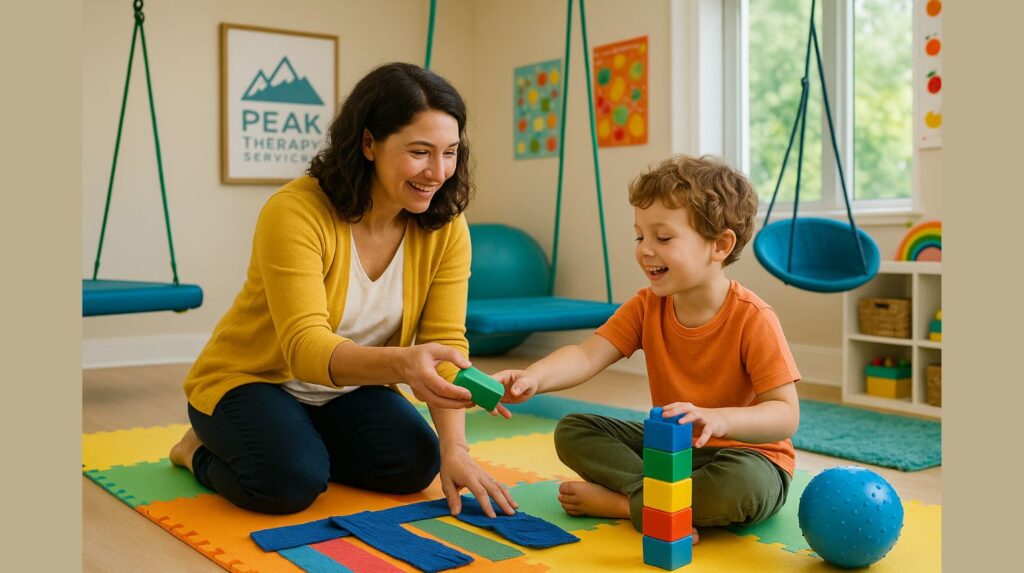When most people think of therapy, they imagine structured sessions, worksheets, or exercises. But for children, play is the most powerful form of learning. At Peak Therapy Services, our pediatric occupational therapists use play as a central tool to help children build the skills they need for independence, confidence, and growth.

Why Play Matters in Child Development
Play is how children naturally explore the world, solve problems, and practice new skills. Through play, kids develop motor abilities, social communication, creativity, and emotional regulation. For children who face developmental delays, sensory challenges, or difficulties with fine motor skills, guided play becomes a bridge to everyday success.
Motor Development – Activities like climbing, coloring, or building blocks improve strength, coordination, and dexterity.
Cognitive Growth – Games that involve matching, sorting, or pretend play encourage problem-solving and memory.
Social Skills – Interactive play fosters cooperation, turn-taking, and understanding emotions in others.
How Peak Therapy Services Uses Play in Therapy
Occupational therapy sessions at Peak Therapy Services often look like fun—but every activity is carefully chosen with therapeutic goals in mind. For example:
A child who struggles with handwriting might use play-dough and tweezers to strengthen hand muscles.
For sensory regulation, a therapist may guide a child through swinging, bouncing, or messy play to help calm or alert their nervous system.
Kids learning self-care can practice through doll play, pretend cooking, or dress-up activities that mimic daily routines.
By embedding skill-building into enjoyable experiences, children stay motivated and engaged.
Play at Home: Tips for Parents
Parents play a vital role in supporting therapy goals outside of sessions. Here are a few strategies you can try at home:
Use everyday items (spoons, cups, laundry baskets) for creative play.
Encourage outdoor activities—running, climbing, and playing catch build gross motor skills.
Integrate sensory-friendly breaks (deep breathing, squishing pillows, or quiet corners) into daily routines.
Make chores playful: turn cleaning, dressing, or setting the table into fun challenges.
Final Thoughts
At Peak Therapy Services, we believe play is more than fun—it’s a pathway to independence. By transforming therapeutic goals into playful experiences, we help children thrive in their everyday environments.
If you’re wondering whether occupational therapy might benefit your child, reach out to Peak Therapy Services today. Together, we can turn play into progress.


